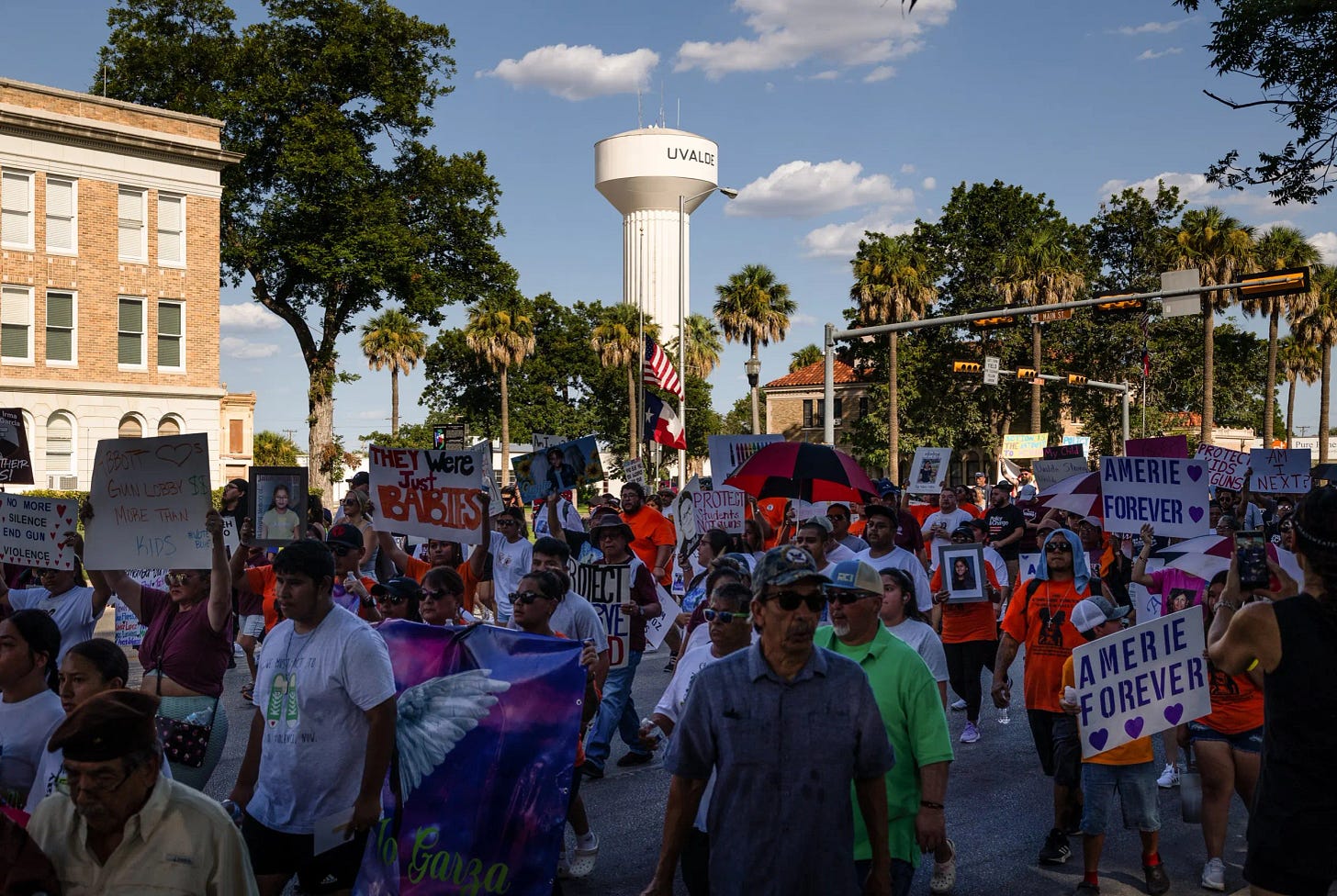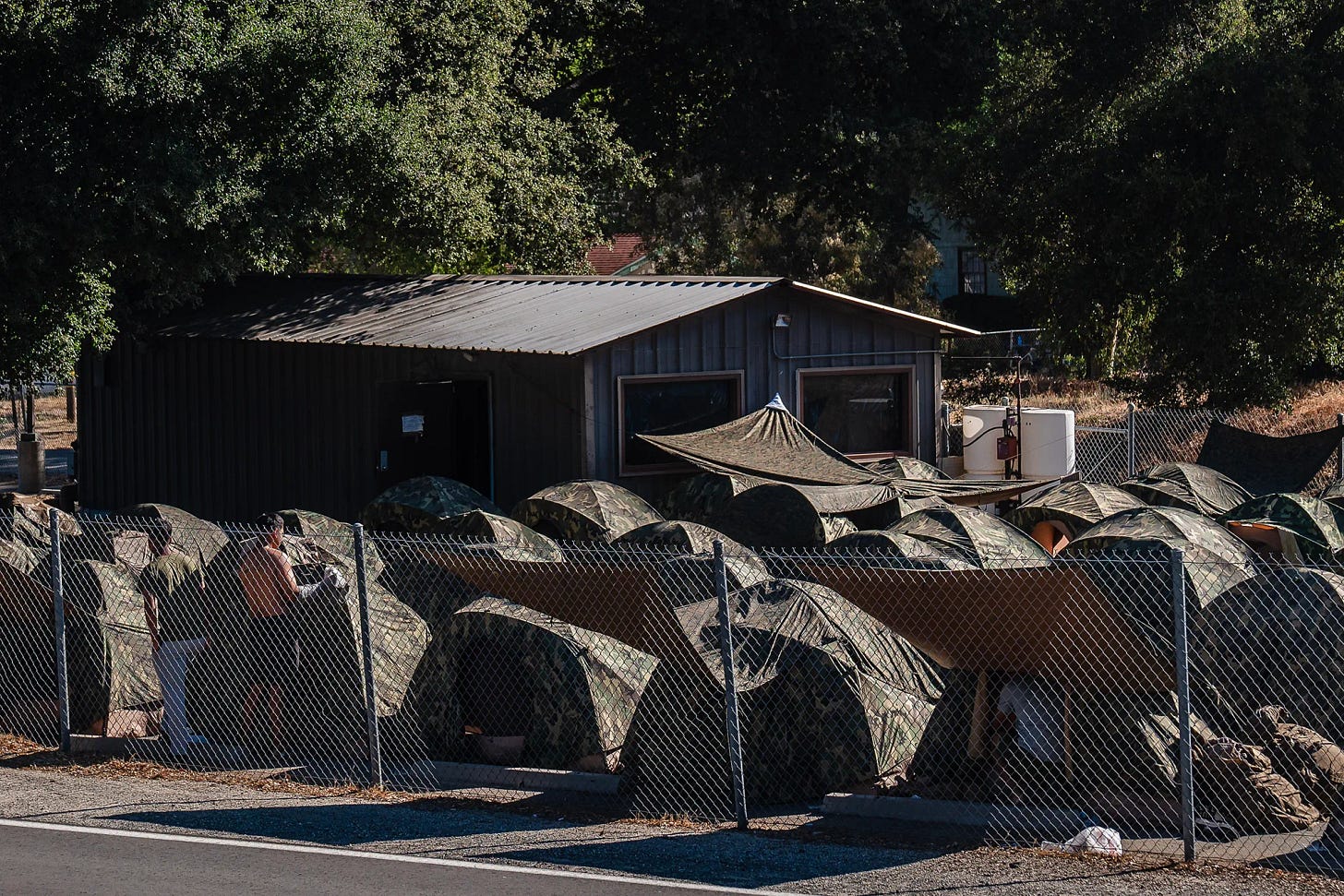⚖️🇺🇸 Supreme Court Limits Injunctions on Trump’s Birthright Citizenship Order, Raising Uncertainty
🇺🇸🪖 Marines Deploy to California Border as Newsom Criticizes ‘Mission Creep’ Expansion 🏛️🚫 Texas Supreme Court Shields Abbott and Paxton from Releasing Uvalde and Jan. 6 Emails

🏛️🚫 Texas Supreme Court Shields Abbott and Paxton from Releasing Uvalde and Jan. 6 Emails
Sneha Dey, The Texas Tribune.- In a ruling on June 27, 2025, the Texas Supreme Court determined that Governor Greg Abbott and Attorney General Ken Paxton are not required to release emails related to the January 6 Capitol attack and their communications with gun lobbyists after the 2022 Uvalde shooting. The case, initiated by the nonprofit American Oversight, challenged the nondisclosure of emails regarding the attack and the response to the Uvalde tragedy. Abbott and Paxton argued that confidentiality rules for attorney communications protected the emails. The court sided with them, stating that only the Legislature, not the courts, can expand public access to open records in such cases. This decision significantly limits the public's ability to challenge Texas officials under the state's open records law.
Key Data:
The Texas Supreme Court ruled against releasing emails related to the January 6 and Uvalde incidents.
Abbott and Paxton cited confidentiality protections for attorney communications.
The ruling narrows the public's ability to challenge open records compliance.
The case stems from a 2022 lawsuit by American Oversight seeking transparency.
Abbott and Paxton's offices claim that no communications occurred with NRA officials after the Uvalde incident.⚖️🇺🇸 Supreme Court Limits Injunctions on Trump’s Birthright Citizenship Order, Raising Uncertainty
Uriel J. García, Carlos Nogueras Ramos, Berenice Garcia, and The Associated Press, The Texas Tribune.- On June 27, 2025, the U.S. Supreme Court partially supported President Donald Trump's executive order to end birthright citizenship, which would deny U.S. citizenship to children born to undocumented immigrants. While the Court’s ruling restricts nationwide injunctions, it leaves open the possibility of continued legal challenges. The decision could lead to confusion and discrimination, depending on the state's jurisdiction. Dissenting justices, including Sonia Sotomayor, argue the executive order violates the Constitution’s 14th Amendment, which guarantees citizenship to those born in the U.S. Immigrant rights groups and lawmakers fear the decision will result in increased legal challenges and jeopardize the rights of U.S.-born children.
Key Data:
The Supreme Court limits nationwide injunctions on Trump’s birthright citizenship order.
The order would affect U.S.-born children of undocumented parents, denying them citizenship.
Dissenters argue the order violates the 14th Amendment’s citizenship clause.
Immigrant rights groups express concern about increased legal cases and confusion for families.
The ruling could lead to more state-specific challenges to the executive order.🇺🇸🪖 Marines Deploy to California Border as Newsom Criticizes ‘Mission Creep’ Expansion

Wendy Fry, CalMatters.- On June 25, 2025, dozens of U.S. Marines were stationed at a Border Patrol station in Campo, California, marking a significant expansion of the Trump administration’s military presence along the southern border. This shift reflects a growing militarization of U.S. border enforcement, with troops now tasked with patrolling and monitoring the border. While military personnel have previously supported law enforcement in non-combat roles, such as logistics and surveillance, this deployment has raised concerns. Critics, including California Governor Gavin Newsom, argue that it represents an overreach and endangers communities and service members. Newsom's office referred to the military's expanded role as "mission creep" and warned of potential risks associated with involving armed forces in domestic law enforcement, especially as the military’s experience with vulnerable migrant populations is unclear. This marks a significant step in the Trump administration’s efforts to assert "full operational control" over the southern border.
Key Data:
U.S. Marines stationed at the Campo Border Patrol station as part of a military buildup on the southern border.
Marines are tasked with patrolling, monitoring, and logistics roles.
California officials express concerns over increased military presence, calling it "mission creep."
Governor Newsom criticizes the expansion and raises safety concerns for communities and soldiers.
Over 10,000 military personnel are now supporting border enforcement across the southern U.S. border.📚🌍 UTRGV Professors Explore Political Shifts in Rio Grande Valley in New Book
Francisco E. Jimenez, The Texas Tribune.- A new book titled Politics of the Rio Grande Valley: An Insider’s Perspective on Regional Politics delves into the region's evolving political landscape, shedding light on the changing demographics, public opinion, and political affiliations in the Valley. Edited by UTRGV political scientists Carlos D. Gutierrez-Mannix and Alexandre Couture Gagnon, the book features contributions from several UTRGV professors and scholars from other universities. It explores crucial topics such as border security, poverty, public opinion, and how local perspectives differ from national narratives. The book aims to offer a more authentic, insider's view of the region’s political dynamics and is seen as a valuable resource for a better understanding of the sociopolitical climate of the Valley. The authors, who are deeply connected to the area, hope the book sparks more informed discussions about the region's unique political identity.
Key Data:
Politics of the Rio Grande Valley offers an insider’s perspective on regional politics.
Edited by Carlos D. Gutierrez-Mannix and Alexandre Couture Gagnon.
Features contributions from UTRGV professors and international scholars.
Focuses on topics such as public opinion, border security, and political shifts in the Valley.
Published in March 2025, with plans for a second volume.





